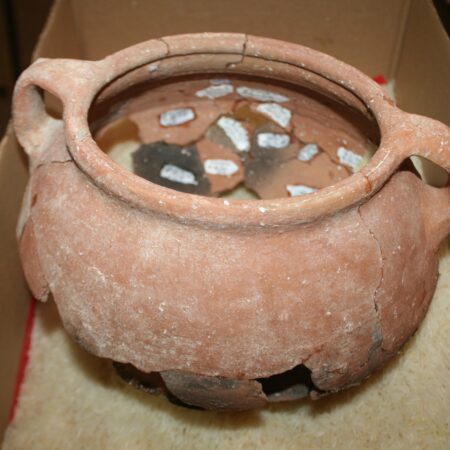Some of you have asked what I have been doing these past three (actually 2 ½) weeks in Israel. Yes, it had to do with archaeology, but I was not excavating anything. I have spent eight seasons excavating in Israel and now three seasons restoring pottery (a season normally lasts between two and six weeks). Along the way I also spent some time on other archaeological activities, such as survey and artefact analysis and cataloguing.
This year I was restoring pottery vessels. That consists of finding potsherds that fit together and gluing them so that as much as possible of a broken pot is restored again. That way we know what pottery was in a certain place and how much of it. Essentially it is like several 3-D puzzles with thousands of pieces mixed up, with no idea whether any of the puzzles are complete. It is relatively easy if all the pieces are distinctive and were excavated in the same spot. It becomes a bit more difficult, if the potsherds from different vessels look fairly similar, when fire or soil has discoloured some potsherds, and when parts of vessels were found far apart. Many sherds also do not fit in a way that is immediately obvious. It sometimes depends on how potsherds are held together that they fit. That satisfying “click” may only be there on the seventh try.
Once I know what fits together the task of gluing is also very slow, with the special restorer’s glue taking several hours to dry and requiring exact positioning so that their own weight pushes the sherds together while the glue is drying. Sometimes masking tape and clips can be used to hold the potsherds together for some time.
Finally, the vessel takes shape. It is a slow process and takes time. But it is a significant step in understanding how people lived previously. For it allows archaeologists to study the way that people used their homes. I have started this project in 2007, have restored hundreds of vessels by now and we’re still not finished. I do hope in the long run it helps us to know more about the lives of people in Ancient Israel. Getting there takes a lot of patience.

